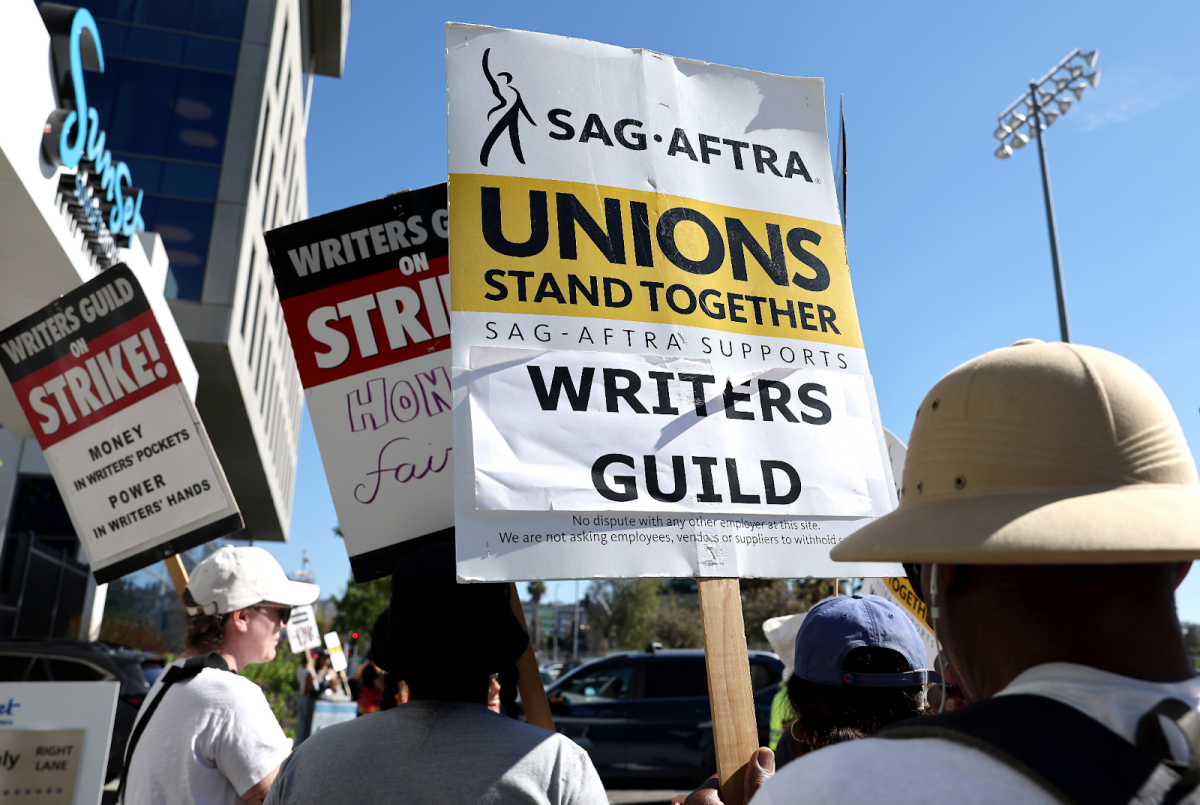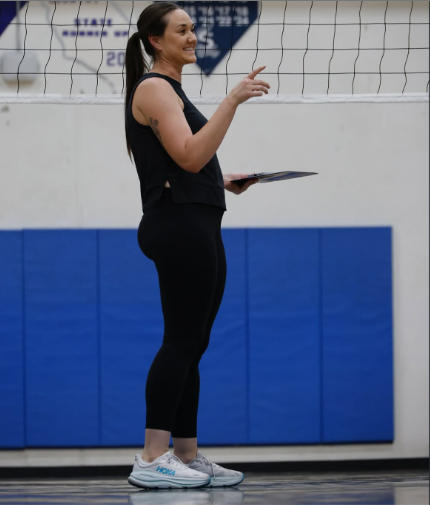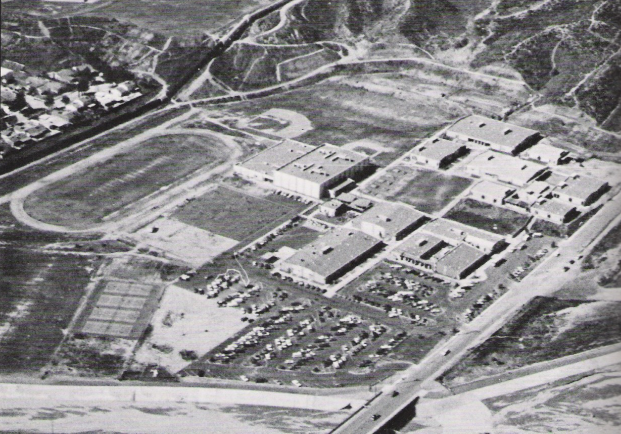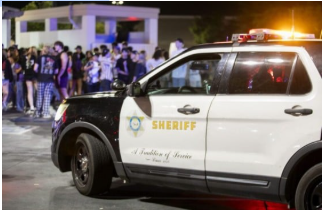Over the past five months, media companies have been struggling due to a large strike. Thousands of writers and actors have been striking and negotiating with their employers for better working conditions and guarantees which are not being provided to them by their employers. The current demands of the WGA, or Writers Guild of America, is demanding increased minimum compensation, better and more professional standards, a larger contribution by the employer to pensions and health plans, security from being replaced by AI, and more.
There are a number of groups participating in the writers strike. Some of the most well known are the WGA and SAG-AFTRA. The WGA, or Writers Guild of America is a coalition of two different labor unions, the Writers Guild of America East (WGAE), and the Writers Guild of America West (WGAW). There are around 11500 registered members of the WGA, who are all in solidarity with each other. They, along with SAG-AFTRA, are striking together. SAG-AFTRA is a much larger organization, with around 160000 members, ranging from actors to puppeteers. Like the WGA, SAG-AFTRA is also a coalition of two labor unions, the Screen Actors Guild (SAG), and the American Federation of Television and Radio Artists (AFTRA). These two groups work closely together to get their demands. They have both been assisting each other since July 14th, when SAG-AFTRA joined the WGA on the picket lines.
While the strikes have been going on, it’s become increasingly clear that Hollywood is being hurt by the unions. Many shows and movies are being delayed due to writers being on strike. Some of these include Euphoria, Stranger Things, Saturday Night Live, The Last Of Us, and The Handmaid’s Tale. Many people are upset or disgruntled, but it’s very likely that these shows will not be available for a while. A number of celebrities and actors have joined the picket lines, and will cause further delay. Some examples include Olivia Wilde, Allison Janney, Rosario Dawson, and Paul Dano.
As the strikes have been raging on, companies and unions have opened negotiations to try to resolve the strike and get their demands. However, negotiations have been unsuccessful. The WGA and AMPTP, or the Alliance of Motion Picture and Television Producers, have been trying to come to a consensus, but have been unable to negotiate a deal. The WGA wrote the following on their website regarding the matter on September 8th, 2023; “In the 130 days since the WGA strike began, the AMPTP has only offered one proposal to the WGA, on August 11th. Since then, the companies have not moved off that proposal. Even though the WGA in turn presented our own counterproposal to the AMPTP on August 15th.” The AMPTP and WGA are currently at a standstill, but are still trying to negotiate some sort of agreement regarding the demands of the WGA.
The future of the labor movement is unclear. Negotiations have reached a standstill, and it’s unknown how the strike will end. Film and media is unfortunately delayed at the moment, and it’s unclear if the strike will end with the WGA getting what they want, or by the media companies keeping things the same. A compromise or solution is possible, but is unlikely at the moment.







